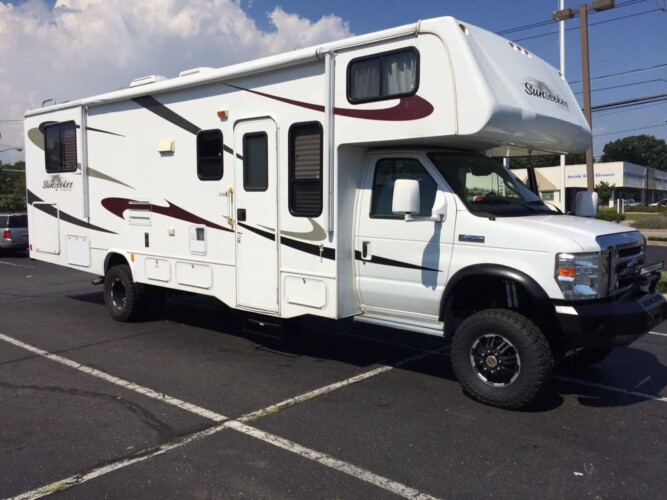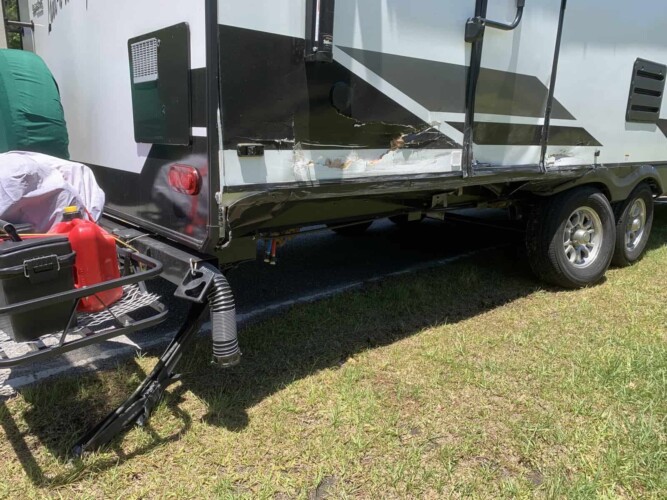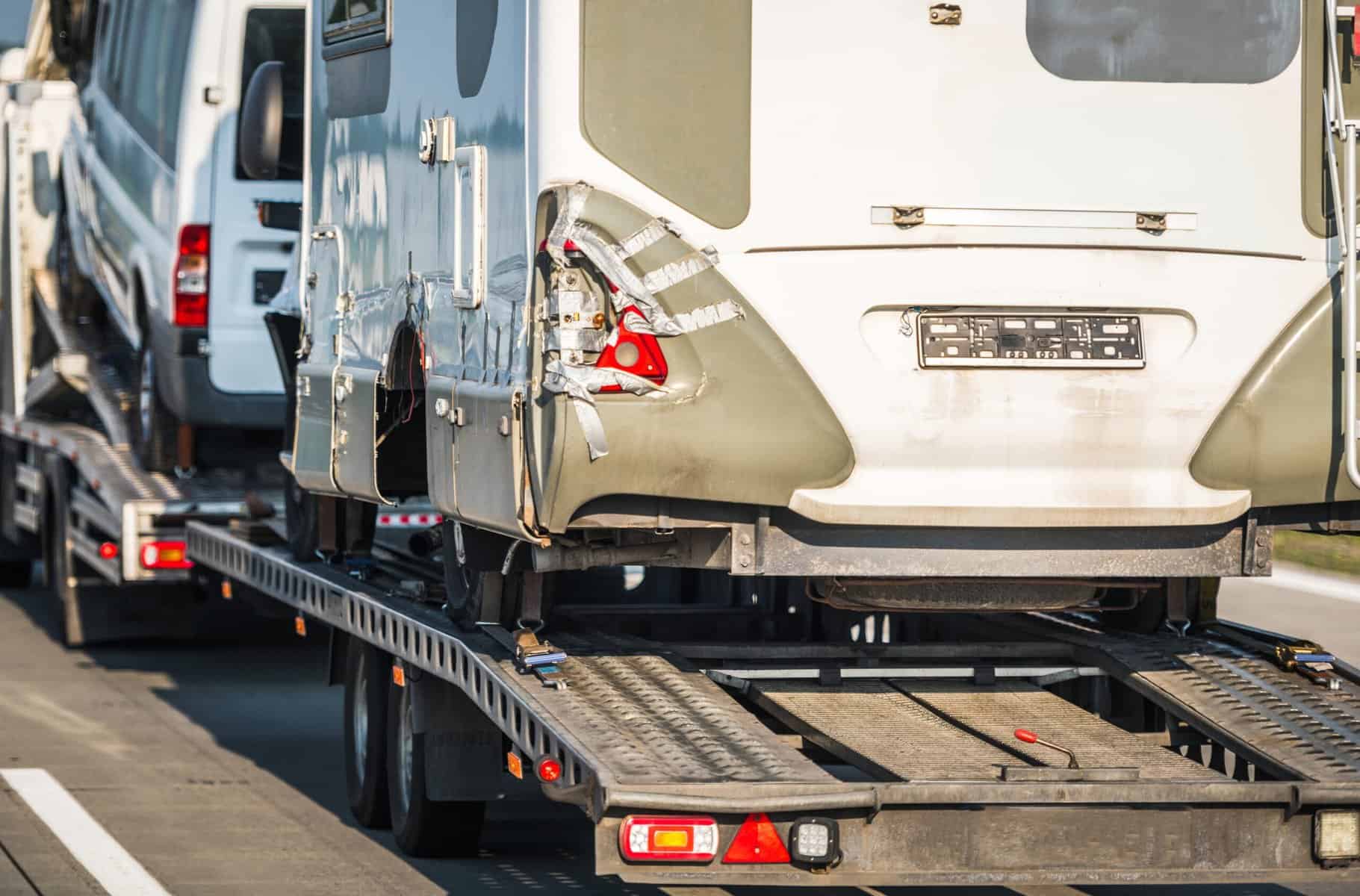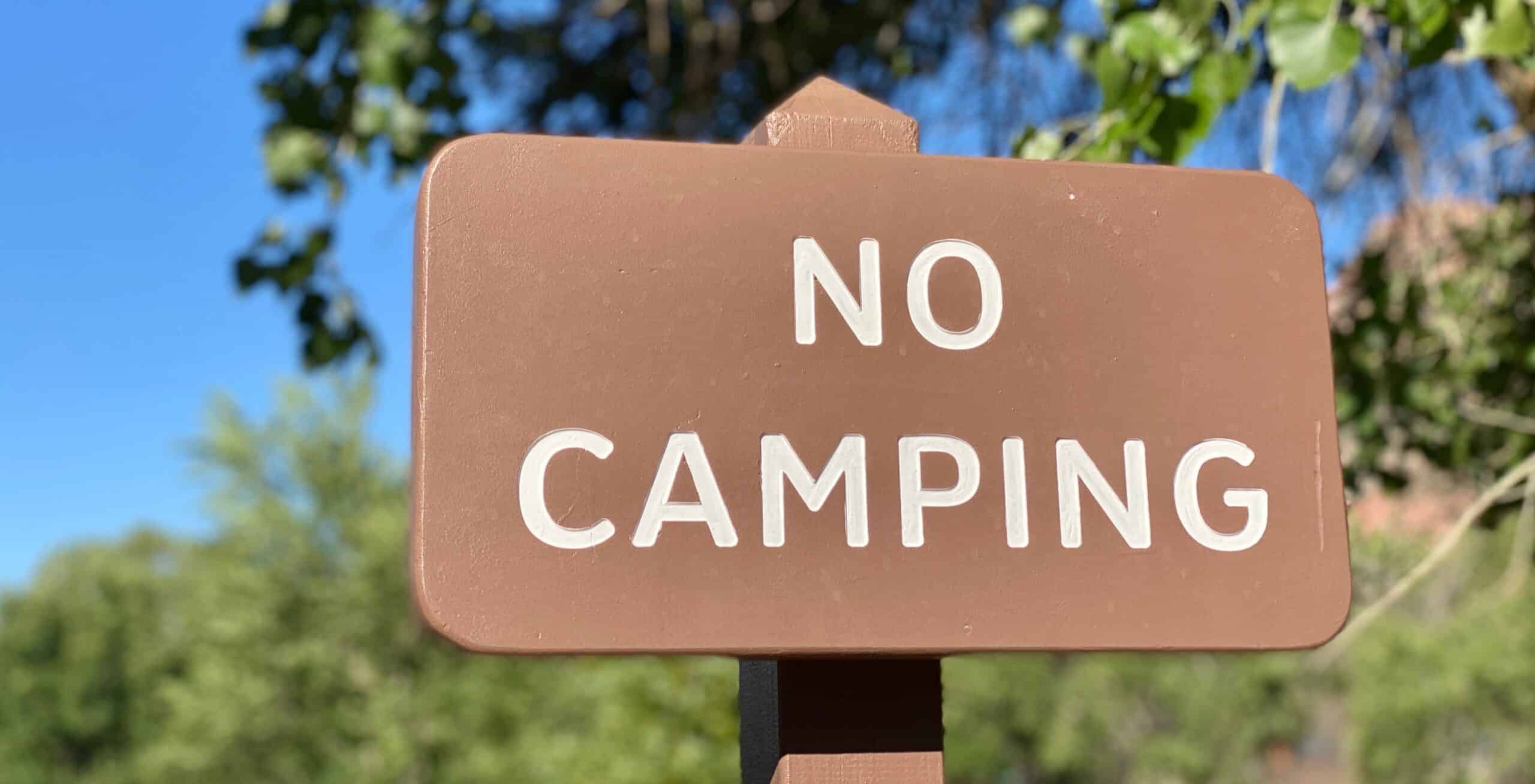Everyone has heard of home and auto insurance, but where does RV insurance fall on that spectrum?
RVs certainly qualify as vehicles due to their wheels and roadworthy designs.
But most motorhomes, travel trailers, vans, and truck campers also contain appliances, wiring, plumbing systems, and full interior spaces.
Because each camper is unique, RV insurance varies quite a bit. However, there are some standard things you can rely on.
In this RV insurance guide, we will walk you through all the various steps and facets of RV insurance. After reading it, you can find the best plan for your needs.
RV Insurance for Different Types of Campers
Before you move forward with your insurance quest, you need to determine which type of RV you have. Although these vehicles come in many shapes and sizes, there are two main classifications that matter for insurance purposes: Motorized RVs and towable RVs. If it has an engine, it’s motorized. If it can’t move on its own, it’s towable.
Motorized RVs
These campers are motorhomes or any type of RV that doesn’t require a separate tow vehicle. Because they are similar to cars, they might be covered under your existing automotive insurance plan.
Towable RVs
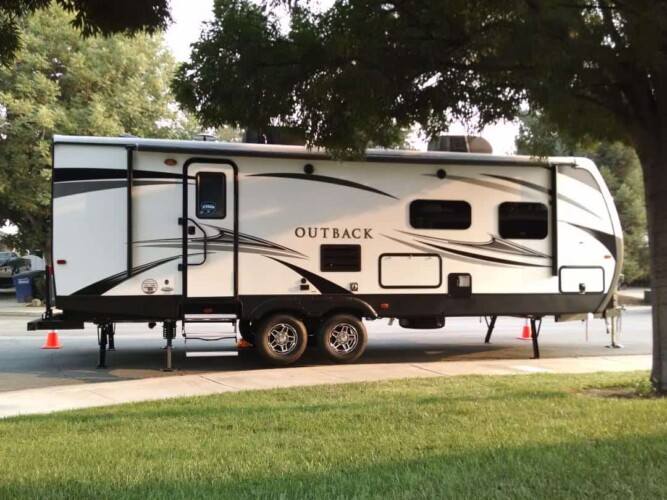
On the other hand, towable trailers include campers that must be moved by a separate vehicle. Fifth wheels, travel trailers, toy haulers, pop-up campers, and teardrop trailers all fall under this category. These campers require more specific policies because they are not technically cars or trucks.
If you already have an insurance plan, check to see if it can cover your RV as well. If not, you’ll need to look into additional coverage. Full-time RVers might even consider switching to a company that caters directly to their lifestyle.
Benefits of RV Insurance
It can be frustrating to pay for your insurance every month, especially if you are paying a high premium. On the upside, RV insurance protects your vehicle from a variety of risks. The premiums you pay today could end up saving you thousands of dollars in the future.
RV insurance benefits vary depending on the plan you choose, but some of the perks include:
What to Look for in an RV Insurance Plan
Insuring an RV is completely different for everyone. Your vehicle’s design, size, and model could all factor in to your decision.
There are many different types of coverage, and you might decide that you need some but not others. You may have the ability to pick and choose which services you pay for, while other companies require you to pay for comprehensive plans.
Keep this in mind while you shop around for an insurance provider. Make sure they offer the types of coverage that you need most. Common types of RV coverage include:
Collision coverage
This is the most common type of coverage. It protects you and your vehicle in the event of a crash. If you’re responsible, your insurance will mitigate the cost of repairs.
Uninsured motorist coverage
If you’re in a crash and the other driver doesn’t have insurance, you might get stuck paying for repairs all by yourself. With uninsured motorist coverage, your provider can make up the difference that the other person can’t pay.
Personal belongings coverage
This plan covers the items within your RV. If something is damaged or stolen, your insurance could reimburse you and cover replacements. This type of protection is useful if you travel with valuables!
Roadside assistance
Sometimes accidents happen while you travel. Tires leak, gas runs out, and batteries die. It’s not always possible to fix these issues on your own, especially if you’re in the middle of nowhere. If you need someone to come out and help you, roadside assistance is your best route.
Comprehensive coverage
This type of coverage applies to damage caused by unforeseen circumstances. Natural disasters often fall under this category, and comprehensive coverage can protect you from wind, rain, snow, lightning, hail, vandalism, falling objects, fire, and more. There may be specific plans for each of these situations, but comprehensive insurance provides a blanket of protection.
There’s a huge list of other coverage types, such as total loss replacement, permanent attachment coverage, vacation liability insurance, and so forth. But if you can find RV insurance that includes the primary coverages described above, you’ll be in good shape.
Best Insurance Companies for RVers
Now that you have a general idea of what to look for, it’s time to start searching for providers. Tons of companies brag about their home and auto plans while RVs are overlooked.
Major RV insurance providers may be able to help, but you should also look for RV-specific insurance companies that can give you precisely what you need.
If you need extra guidance during this process, turn to RVer Insurance Exchange.
RVer Insurance Exchange specializes in helping travelers find the best plan for their lifestyle. They also provide plans specifically for full-time RVers that include dental/vision insurance, extended warranty coverage, and fixed-benefit medical plans.
With that in mind, here are some of the best insurance companies for RVers.
Check out each of these options, but be sure to reach out to your existing insurance provider as well. They may be able to offer better rates, especially if you’ve established yourself as a trustworthy customer/driver.
Carefully compare rates and premiums before you make your choice. After all, your insurance provider can make or break your experience as an RVer.
RV Insurance: Final Thoughts
RV insurance isn’t a legal requirement in every state, but it’s always better to have it regardless. You don’t want to get stuck paying for collision repairs out of pocket! Insurance also provides additional protection, such as roadside assistance and comprehensive coverage.
The providers above are a good place to start your search, but there are countless smaller options you could explore as well. Just make sure they provide the protection you need at a reasonable rate! In the end, you’ll be glad you have insurance because your RV will be protected for years to come.
Related Articles:
- Part-Time and Full-Time RV Insurance Tips to Keep You Covered
- Hidden Dangers of Buying or Selling an RV
- Quick Guide to RV Insurance Tips for Travelers

